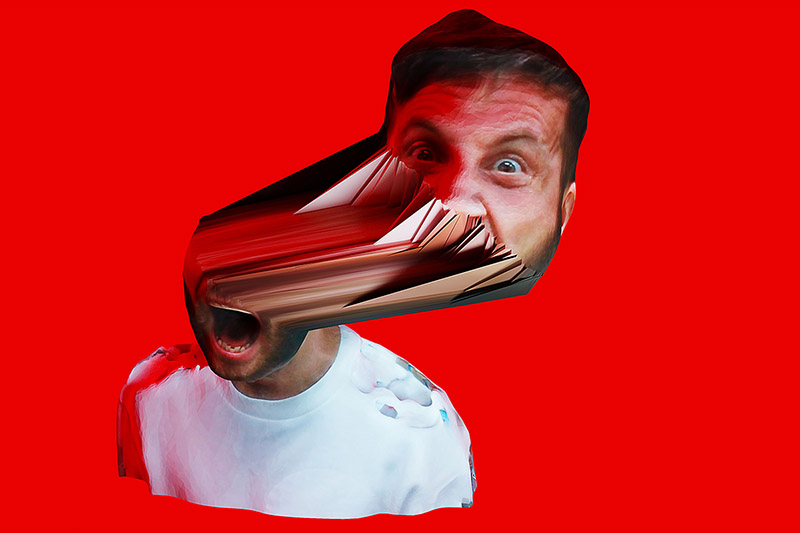In the digital try-out "Happily Ever After", Benjamin Burger gets to the bottom of the industrial promise of happiness, questions which biopolitical assumptions underlie it and how various emotional assistants teach him to make his inner world blossom while the outer world continues to deteriorate.
"A person who feels good is a good person. A person who feels bad is a bad person" is how philosopher Eva Illouz describes the paradigm of the "happiness dictatorship". Behind this logic is an industry for which the perception of happiness is a resource. It surfs on the promise that one's own happiness and well-being are only a question of one's own worldview. Various apps promise that negative emotions can be controlled and personal happiness can be trained. "You just need to weather the storm." In exercise programmes, they hold out the prospect of an ever-improved, even happier self. These apps for emotion control are an expression of a technocratic worldview, for which everything, including one's own psychological feelings, can be programmed. In fact, the Happy Interfaces promise that negativity is an evolutionary aberration, but that we can re-polarise ourselves for happiness. "I know it looks like science fiction but it's not".
At Tatwerk, Benjamin Burger and musician Ray Herlitz will present a first show based on their previous research in the form of a digital videolecture performance.
Supported by Stadt Zürich Kultur
Dates
Streaming within »Between Us«
May 15th 2021 | 8:30 pm
TATWERK | Berlin / On Twitch
After the show:
Digitale Feedback-Session with Theaterscoutings Berlin
»Between Us« invites selected artists to realize independent, digital and discursive formats within their own work processes explicitly designed for streaming.
Supported by Fonds Darstellende Künste with funds from the Federal Government Commissioner for Culture and the Media.

